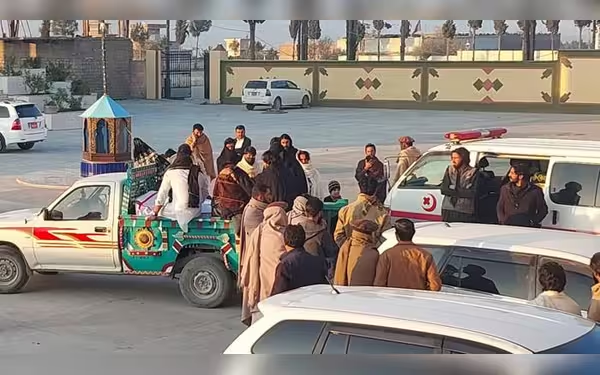Monday, December 23, 2024 05:43 AM
Tribal Clashes in Kurram Leave 30 Dead and 20 Injured
- 30 killed and 20 injured in Kurram clashes
- Recent violence claims 75 lives in three days
- Urgent need for dialogue and reconciliation
 Image Credits: thenews.com.pk
Image Credits: thenews.com.pkTribal clashes in Kurram, KP, result in 30 deaths and 20 injuries, highlighting urgent need for peace and reconciliation efforts.
The recent surge in violence in Kurram, a district in Khyber Pakhtunkhwa (KP), Pakistan, has left the region reeling. In a shocking turn of events, tribal clashes have resulted in the deaths of at least 30 individuals and left 20 others injured. This latest outbreak of violence follows closely on the heels of a tragic incident just two days prior, where gunmen targeted two separate convoys that were under police escort, leading to the loss of 45 lives. Over the past three days, the ongoing gun battles between different tribes have claimed a staggering total of 75 lives, according to police reports.
The situation in Kurram is a stark reminder of the deep-rooted tribal conflicts that have plagued the region for years. These clashes often stem from long-standing grievances and disputes over land, resources, and power. The involvement of armed groups and the lack of effective governance have further exacerbated the violence, making it difficult for authorities to restore peace.
As the violence continues, the local population is caught in a cycle of fear and uncertainty. Families are being torn apart, and communities are being devastated. The impact of such conflicts extends beyond immediate casualties; it disrupts daily life, hinders economic activities, and creates an atmosphere of mistrust among different tribes.
In light of these events, it is crucial for the government and local leaders to take decisive action to address the underlying issues fueling these conflicts. Dialogue and reconciliation efforts must be prioritized to foster understanding and cooperation among the tribes. Additionally, enhancing security measures and ensuring the protection of civilians should be at the forefront of any response to this crisis.
Ultimately, the people of Kurram deserve to live in peace and security. It is imperative that all stakeholders come together to find a sustainable solution to these tribal clashes. Only through collective efforts can the region hope to break free from the cycle of violence and build a brighter future for its residents.













